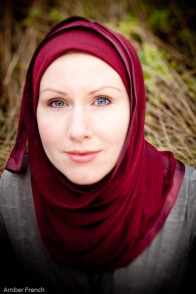 Offered the opportunity to create a new super hero comic character, G. Willow Wilson, author and renowned comic book writer, decided to buck all the known rules of comic craft:
Offered the opportunity to create a new super hero comic character, G. Willow Wilson, author and renowned comic book writer, decided to buck all the known rules of comic craft:
- New characters don’t sell.
- Minority characters don’t sell.
- Female characters don’t sell.
With this marketing, memeing trifecta suspended, Wilson gave rebirth and voice to Kamala Khan, a second generation American of Muslim and Pakistani heritage who lives in that hub of super power activity, Jersey City. This was a situation comparable to how I survived driving in Casablanca traffic – suspend the rules and give creativity full reign.
This new, young, fully fledged comic book heroine (Kamala had appeared  briefly as a secondary character in earlier Marvel comics, going back to 2013) has contravened the system and come up aces, with the series being nominated for a half dozen awards its first year and even winning on occasion. The attraction of Kamala and her super hero counterpart, Ms. Marvel, is based on a new reality, the life and motivations of a millennial teen. No life altering trauma lurks in Kamala’s past. Her family is nuclear, and, in fact, conservative. She sees what isn’t working in her community and sets out to make a difference. Ms. Marvel aspires to represent a generation, one comprised of youngsters with diverse cultural influences, broad interests, wells of deep misery, and a generation-specific world view.
briefly as a secondary character in earlier Marvel comics, going back to 2013) has contravened the system and come up aces, with the series being nominated for a half dozen awards its first year and even winning on occasion. The attraction of Kamala and her super hero counterpart, Ms. Marvel, is based on a new reality, the life and motivations of a millennial teen. No life altering trauma lurks in Kamala’s past. Her family is nuclear, and, in fact, conservative. She sees what isn’t working in her community and sets out to make a difference. Ms. Marvel aspires to represent a generation, one comprised of youngsters with diverse cultural influences, broad interests, wells of deep misery, and a generation-specific world view.
No “model minority” hero, Kamala mirrors the issues facing millions of teenagers, including fitting in at school, getting along with caring parents who have inherited views, being a good Muslim in a modern world, and taking action for good in an environment that seems overwhelmed by need. For Marvel to add this sweet, soprano voice, one that prays five times a day, to a chorus of baritones and tenors, illustrates a prophetic vision, because it is not the youth that have trouble with diversity, cultural differences, and strongly held beliefs. Those limitations are trumpeted by an older generation, one that hasn’t lived on the edge of everywhere the way our techno-teens have done. For this “Gen Why”, the landscape may not be positive, but it is limitless.
Both Wilson and Kamala share a particular philosophy which demands that regardless of the dire circumstances, the odds of pushing past the obstacles, the chances of having an impact, each person must take action. Ms. Wilson quoted the Prophet Muhammed to explain a commitment shared by Kamala. “If the hour of reckoning comes upon you, and you are holding a seedling ready for the ground, plant the seedling.”
Though millennials may reject the notion of positive thinking, they cling to hope and the chance for survival. In their world, there are no Happy Days families, all sweetness and light. Instead there are “ad hoc families”, defined by circumstance, “trying to stay together.” In observing the corruption, greed, and inequities all around, Ms. Marvel and her gen-mates are not about to take on a broken system from within. No, like the Occupy set of a half decade ago, they are moving against the tide of tradition from the outside.
 Thus, in a world both battling and ignoring issues of pollution and global warming, it isn’t surprising that Kamala Khan receives her super powers, primarily shape-shifting and healing, from an alien cloud that hangs over the city. In the manner of strange gifts bestowed, Kamala’s powers and insights don’t come without a cost. Let’s face it, being a teenager is hard enough without having to save the world on top of it. Still, as the series progresses, the reader sees her struggle through the same doubts and demons as the rest of us. The Marvel website explains her dilemma. “Is she ready to wield these strange and immense new gifts? Or will the weight of the legacy before her be too much to handle?” Which makes her all the more a superhero with more than a touch of genuine humanity.
Thus, in a world both battling and ignoring issues of pollution and global warming, it isn’t surprising that Kamala Khan receives her super powers, primarily shape-shifting and healing, from an alien cloud that hangs over the city. In the manner of strange gifts bestowed, Kamala’s powers and insights don’t come without a cost. Let’s face it, being a teenager is hard enough without having to save the world on top of it. Still, as the series progresses, the reader sees her struggle through the same doubts and demons as the rest of us. The Marvel website explains her dilemma. “Is she ready to wield these strange and immense new gifts? Or will the weight of the legacy before her be too much to handle?” Which makes her all the more a superhero with more than a touch of genuine humanity.
